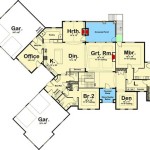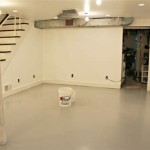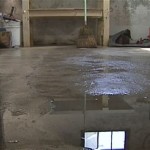How to Install Drywall in a Basement: A Comprehensive Guide
Transforming your basement into a functional and inviting living space requires a solid foundation, and drywall plays a crucial role in achieving this. Drywall installation can seem daunting, but with the right preparation and techniques, you can successfully complete this project and create a beautiful and durable basement.
In this guide, we will explore the essential steps involved in drywall installation in a basement, ensuring a professional-looking finish and a comfortable living environment.
Materials and Tools
Before starting, gather the necessary materials and tools:
- Drywall panels (5/8-inch thickness recommended for basements)
- Drywall screws
- Drywall tape
- Joint compound
- Putty knife
- Screwdriver or drill
- Drywall saw or utility knife
- Measuring tape
- Level
- Caulk gun
Basement Preparation
Ensure your basement meets these requirements:
- Dry and moisture-free
- Well-ventilated
- Free of any obstacles or obstructions
Installing the Drywall
Follow these steps to install the drywall:
1. Measure and CutMeasure the area to be covered and cut the drywall panels to fit, allowing for 1/8-inch gaps between the panels and the floor, walls, and ceiling.
2. Position the PanelsHold the drywall panels in place and secure them to the studs using drywall screws. Space the screws evenly, about 6 inches apart.
3. Stagger the JointsAvoid aligning the joints of adjacent drywall panels. Stagger them for added strength and to minimize cracking.
4. Tape the JointsApply drywall tape over the joints and press it firmly into place. Use a joint compound to cover the tape and smooth it out using a putty knife.
5. Sand the JointsOnce the joint compound has dried, sand it smooth to create a seamless finish.
6. Prime and PaintApply a primer to the drywall to seal it and prepare it for painting. Choose a high-quality paint suitable for basements, especially if moisture is a concern.
Finishing Touches
- Caulk the Edges: Apply caulk along the edges of the drywall where it meets the walls, ceiling, and floor to prevent drafts and moisture intrusion.
- Install Trim: Add trim pieces, such as baseboards, crown molding, or chair rails, to enhance the appearance and conceal any gaps.
Tips for Basement Drywall Installation
- Use moisture-resistant drywall for basements.
- Install a vapor barrier behind the drywall to prevent moisture penetration.
- Ventilate the basement during and after drywall installation to remove excess moisture.
- Allow ample drying time between coats of joint compound and paint.
- Consider using a professional drywall installer for larger or complex projects.
Conclusion
Installing drywall in a basement requires careful preparation and precise execution. By following the steps outlined in this guide, you can confidently create a durable, moisture-resistant, and aesthetically pleasing living space in your basement. Embrace this home improvement project and transform your basement into a functional and enjoyable room.

Beginners Guide To Installing Basement Drywall Semigloss Design

Is Drywall Ceiling In A Basement Any Good Remodeling Journey

Don T Test Your Luck With Drywall Why Our Waterproofed Basement Walls Are The Way To Go News And Events For Total Finishing

Basement Remodel Day 4 Hanging Taping Mudding Drywall

How Much Does It Cost To Drywall A Basement Real Estimate Services

Basement Drywall

How Long Does It Take To Install Drywall Calgary Doctors

What Type Of Drywall To Use In A Basement Wallboard Trim Tool

Basement Drywall

3 Things To Do Before Installing Drywall In The Basement
See Also








